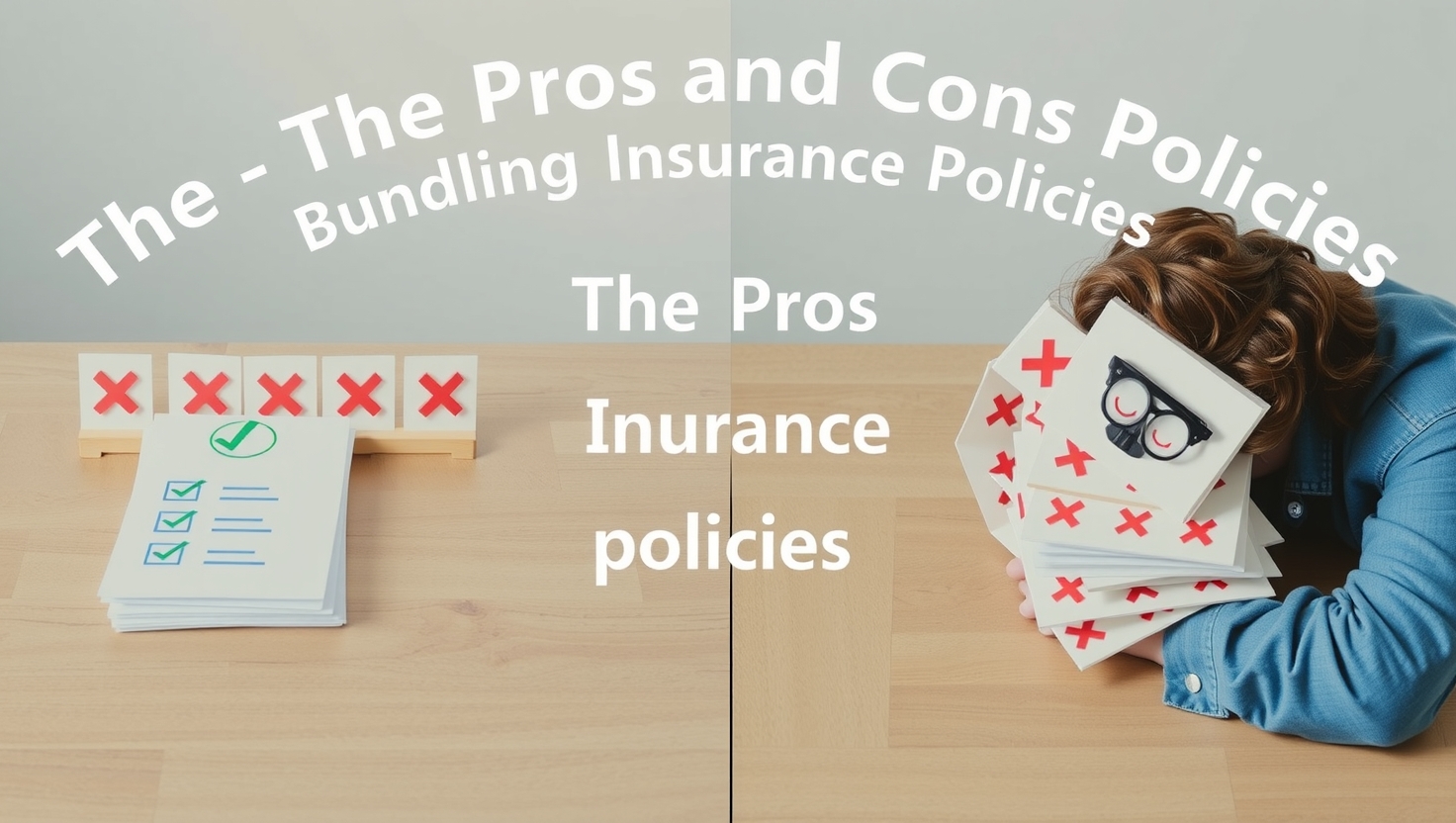The Pros and Cons of Bundling Insurance Policies
When it comes to managing your insurance coverage, bundling multiple policies with the same provider can be an attractive option. It promises convenience, potential savings, and simplified paperwork. But is it always the best choice? Let’s take a balanced look at the advantages and drawbacks of bundling insurance policies to help you decide what works best for your needs.

The Pros of Bundling Insurance
1. Cost Savings
One of the biggest incentives for bundling is the potential for discounts. Many insurers offer reduced rates when you combine policies like auto, home, and life insurance under one provider. These savings can add up over time, making bundling a financially appealing option.
2. Simplified Management
Keeping track of multiple policies from different insurers can be tedious. Bundling means fewer bills to pay, one point of contact for customer service, and a streamlined renewal process. This convenience can save time and reduce administrative hassle.
3. Enhanced Coverage Options
Some insurers provide additional perks for bundled policies, such as higher coverage limits, waived deductibles for certain claims, or extra protections that aren’t available when policies are purchased separately.
4. Stronger Customer Loyalty Benefits
Insurance companies often reward long-term customers with loyalty discounts or better claim handling. Bundling can strengthen your relationship with your insurer, which may lead to more personalized service over time.
The Cons of Bundling Insurance
1. Potentially Higher Overall Costs
While bundling can offer discounts, it doesn’t always guarantee the best price. Sometimes, purchasing individual policies from specialized providers could be cheaper than a bundled package. It’s worth comparing quotes before committing.
2. Limited Flexibility
Bundling locks you into one insurer for multiple policies, which may not be ideal if another company offers better rates or coverage for a specific type of insurance (e.g., auto or homeowners). You might miss out on more competitive options elsewhere.
3. Risk of Overlapping or Inadequate Coverage
Not all insurers excel in every type of coverage. While one company might offer great auto insurance, their homeowners’ policies might lack certain protections. Bundling could mean compromising on quality in one area for the sake of convenience.
4. Difficulty Switching Providers
If you decide to switch insurers for one policy, you may lose discounts on the bundled policies, making it harder to make changes without financial penalties.
Is Bundling Right for You?
Bundling insurance policies can be a smart move if you prioritize convenience and your insurer offers strong coverage across all policies. However, if cost savings or specialized coverage is your top priority, shopping around for separate policies might be a better fit.
Before making a decision, compare quotes, assess your coverage needs, and weigh the pros and cons based on your personal situation. Insurance is all about protection—make sure your choice truly safeguards what matters most to you.
Would you prefer the simplicity of bundling, or do you prioritize finding the best individual policies? The answer depends on what balance of convenience, cost, and coverage works best for your life.